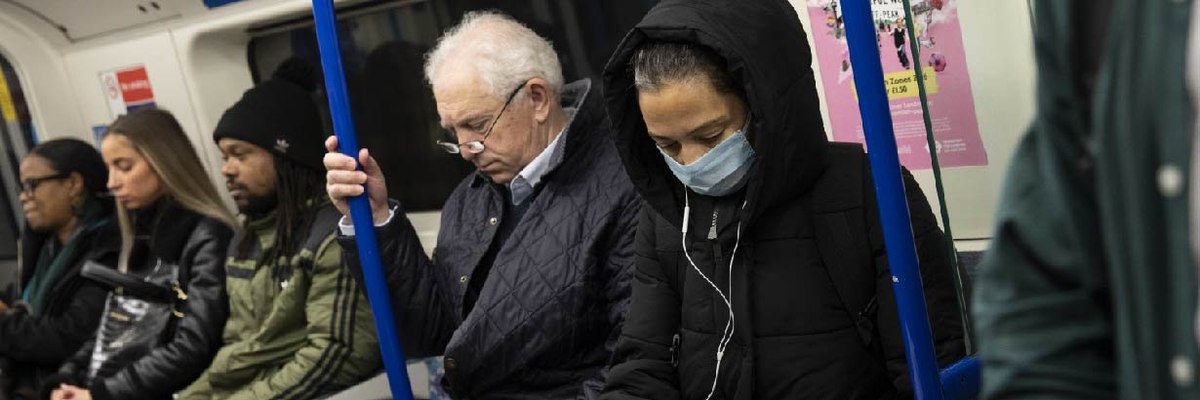With coronavirus continuing to spread around the world, YouGov continues to track how people are responding to the outbreak personally, and their views on the Government’s reaction. With almost daily dramatic policy announcements designed to stem the outbreak, here are our key findings and analysis on how the British public has responded to such a dramatic week.
Brits are getting more worried about the outbreak
It’s perhaps unsurprising that the British public is getting more nervous about the coronavirus outbreak, as the number of confirmed cases and deaths rises. Nearly half (48%) now say they are very or fairly scared they will contract the disease, up from 38% last week. The number who say they are not very scared, or not scared at all, is now almost equal, at 49% - down from 59% last week.
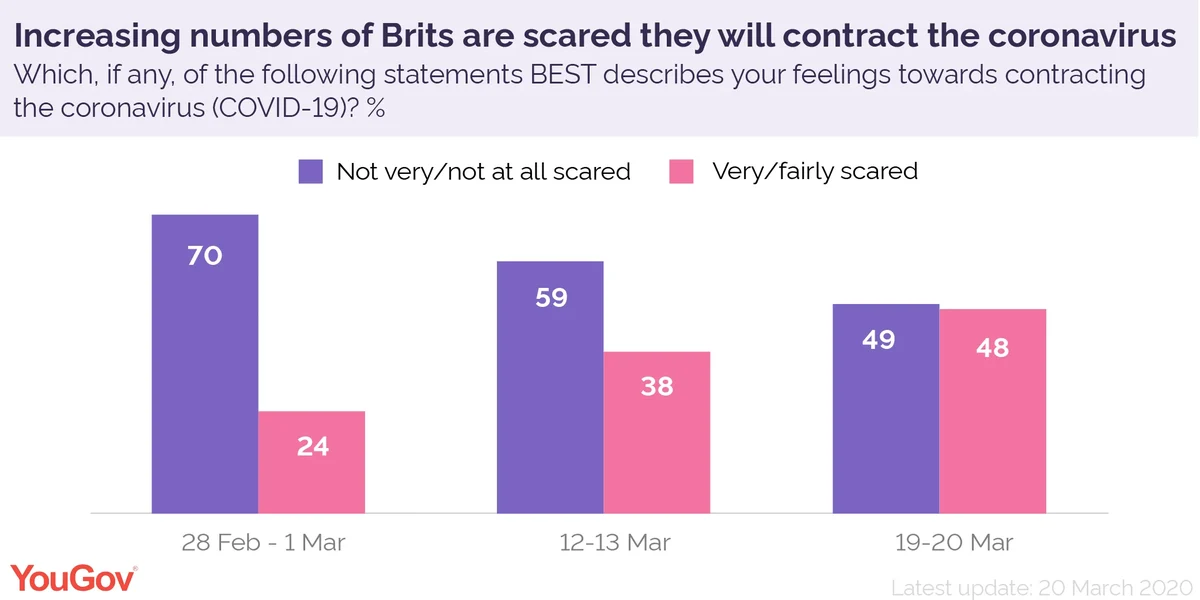
Brits are generally supportive of the Government
Overall, the British public retain their confidence in the Government’s ability to handle this crisis. In fact, the 59% who think the Government is handling the crisis well is slightly up on last week (55%) while the proportion thinking they are handling it badly is slightly down (at 31%).
More broadly, the public also have been supportive of the actions the Government has so far taken to combat the crisis. By a margin of 67% to 17% they supported they thought the decision to shut schools was the right one, and the majority (61%) also supported asking those aged over 70 to self-isolate, with just 30% opposed.
There is even support for more drastic measures that haven’t yet been imposed by the Government. For example, 64% would support London being put under a “lockdown”, with just 17% opposed. Last week the public even said they would support rationing food by a margin of 63% to 25%.
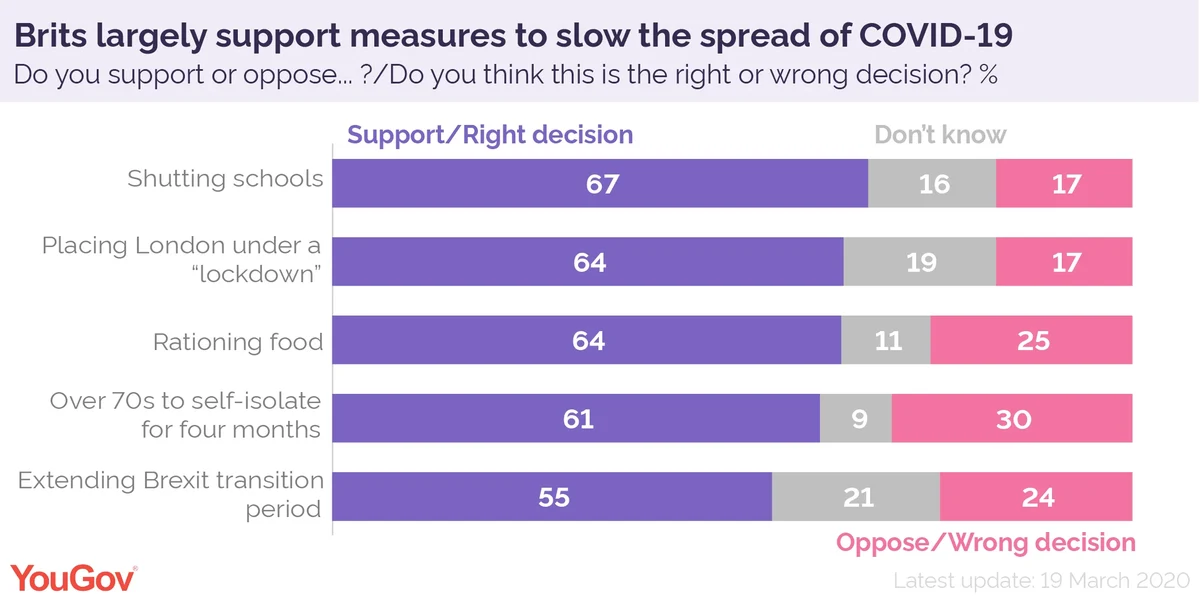
And despite it being one of the most dramatic debates in British politics just weeks ago, a majority of the public (55%) would now support extending the Brexit transition period as negotiations have now had to be delayed. A quarter (24%) are still opposed, while 21% say they don’t know.
But the Government does have a problem with younger people
Despite this, the Government clearly has a problem with younger people. Firstly, because they have less confidence in this Government. Just 35% of 18 to 24 year olds think the Government is handling this well, compared to 77% of the aged over 65. On the other hand, the majority (55%) of 18 to 24 year olds think this Government is handling it badly, compared to just 18% of the over 65s.
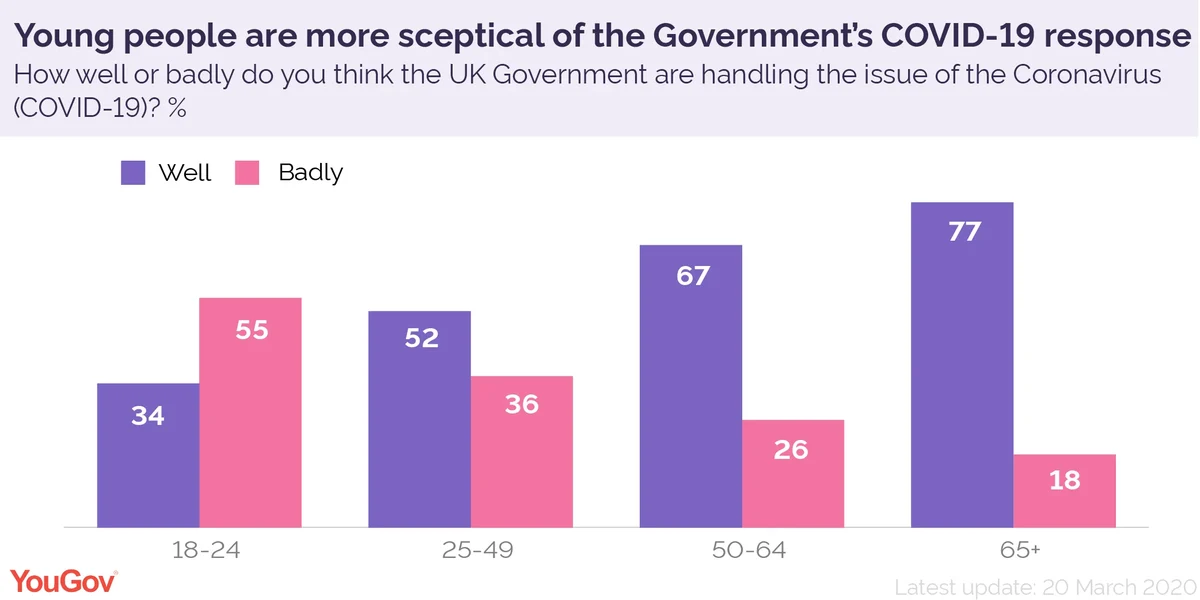
Even more worryingly, just 33% of 18 to 24 year olds think the Government is being honest about the coronavirus outbreak (47% say dishonest) compared to a majority (58%) of over 65s (just 21% of whom think the Government is being dishonest).
This is almost certainly because of higher levels of cynicism about this Government generally. Our data has been showing an increasing generational divide in our politics for some time, with younger voters being less supportive of Boris Johnson and the Conservatives.
However, unlike in an election campaign (where they can just focus on maxing out their support among more favourable groups) the Government really does need to care about how they can cut through to younger members of the public, given they need them to comply with advice in order to stop the spread of the infection.
Younger people are generally less scared about the virus than older generations, for example just 12% say they think they could die if they catch the disease, compared to 32% of the over 65s, which may be making them less willing to make sacrifices by following government advice.
And so far we have seem more limited uptake of this advice among younger members of the public. For example 46% of 18 to 24 year olds said (on Tuesday) that they were still going out as normal, compared to 47% who said they were staying inside more. This compares to just 33% of over 65s who were going outside more, compared to 66% who were staying inside more. One in ten 18 to 24 year olds also said they wouldn’t self-isolate if they had symptoms, compared to just 5% of the over 65s.
While Boris is still divisive, the public are warming to Rishi Sunak and Chris Witty
Because of this, the Government needs think carefully about its messengers to make sure they are best cutting through with the public.
While Boris Johnson isn’t unpopular by a politician's standards, he is still quite divisive. While 53% of the public have a lot or a fair amount of confidence in him when it comes to the coronavirus outbreak, 39% say they have not much confidence or no confidence at all. Among 18 to 24 year olds, the majority (51%) have little or no confidence, with just 32% having a lot or fair amount of it.
There are two other spokespeople who, whilst they both have lower levels of awareness, they also come with less baggage and therefore might be better embraced.
On the political front, Chancellor of the Exchequer Rishi Sunak has a net positive score, with 36% say they have a lot or a fair amount of confidence in him, compared to just 21% who have not much or none. At this stage 43% say they don’t know enough about him to say.
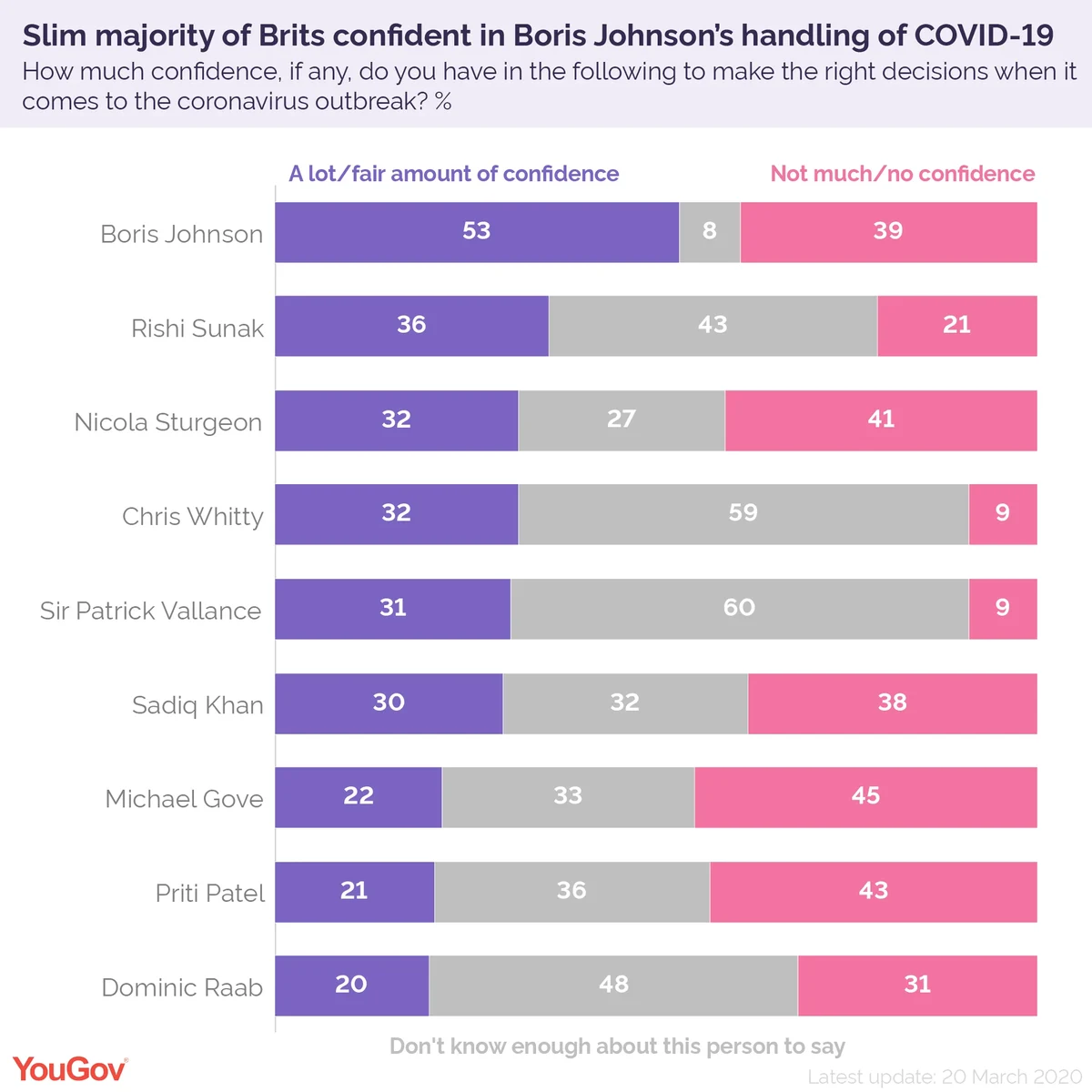
We also tested Chris Witty, the Chief Medical office, who has been frequently appearing alongside the Prime Minister at his daily press conferences. At this stage 32% say they have a lot or a fair amount of confidence in him, over three times the 9% who say they have not much or no confidence. Nearly six in ten (59%) say they don’t know enough about him to say.
The public now think this will have a long-term impact on the economy
The final shift in views over the past week has been to do with the economy. It has been a dramatic week on this front, with events cancelled, bars and restaurants closing, and the Chancellor announcing a multi-billion pound bailout package for business.
This has not gone unnoticed among the public, with a realisation that this is now going to have a long-term impact on the economy, and not just be a short term blip. The majority of the public now think this will have a long-term impact on jobs and unemployment (62%, up from 26% last week), and the economy overall (65%, up from 36% last week).
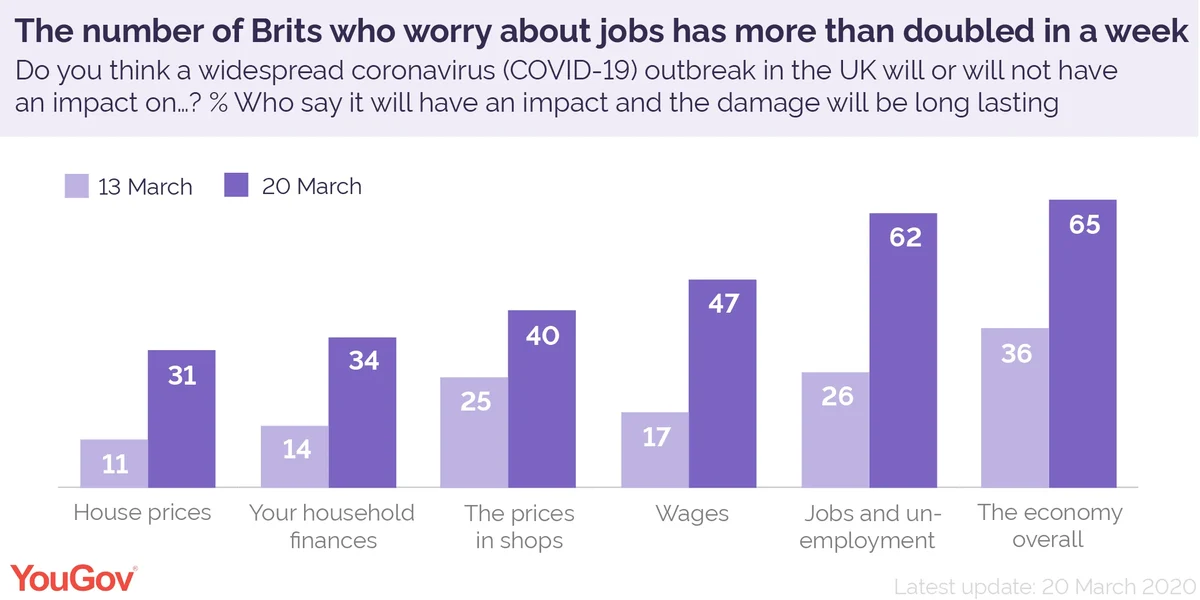
There has also been a noticeable increase in the number who think this will have a long-term impact on wages (now 47%, up from 17% last week), and on prices in shows (up to 40% from 24%).
Despite this the public still tend to think this will only have a short term impact on their own household finances. Just 34% think it will have a long-term effect (although this is up from 14% last week) while 44% think it will still only have a short-term effect (practically unchanged from the 43% who thought so last week. However, there has been a noticeable decrease in the number who think it will have no impact as all, down from 43% to 22%.
Working class people are slightly more worried about the impact on their household finances, with 38% of C2Des saying they think it will have a long-term impact compared to 31% of ABC1s.
Photo: Getty
See the full results on coronavirus and the Brexit transition, confidence in government figures and how worried Brits are about the coronavirus
